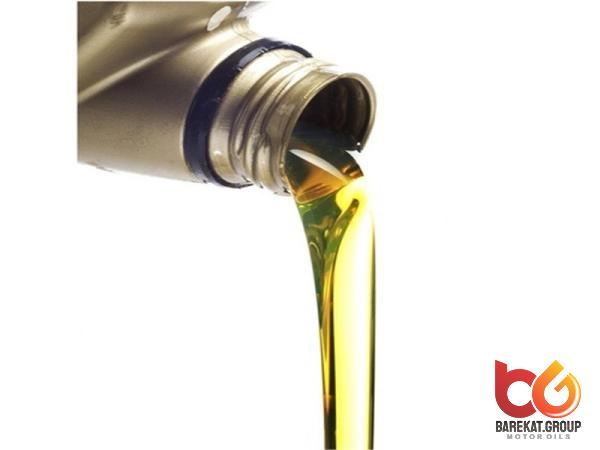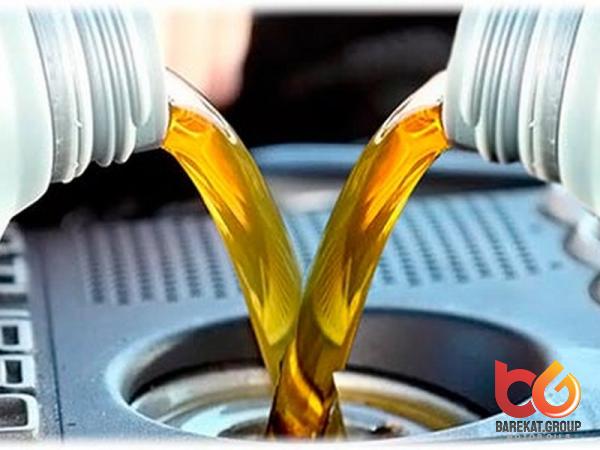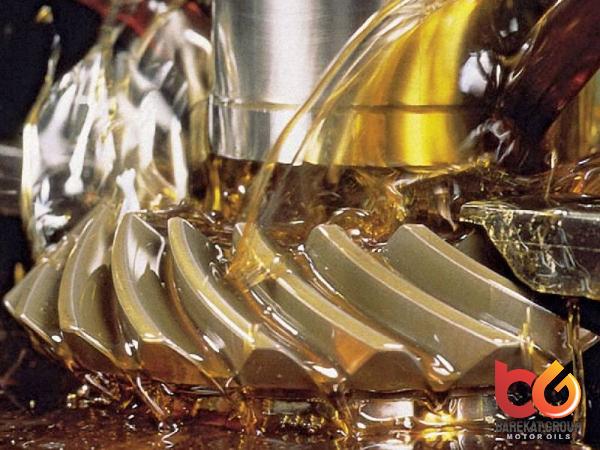Properties, Applications, and Environmental Considerations Introduction: Industrial mineral oil is a versatile and widely used substance derived from petroleum. It finds application across various industries due to its unique properties and compatibility with different materials. This article aims to provide an overview of industrial mineral oil, including its composition, properties, common applications, and environmental considerations. Composition and Production: Industrial mineral oil is a type of mineral oil that is produced through the distillation of petroleum. It is typically composed of a mixture of hydrocarbon compounds, primarily containing alkanes, cycloalkanes, and aromatic compounds. The specific composition of mineral oil can vary depending on factors such as the source of the petroleum and the refining process employed. It is worth noting that mineral oil does not contain additives, making it different from other types of commercial oils. Properties: The properties of industrial mineral oil make it suitable for a wide range of applications. Some key properties include: 1. Viscosity: Mineral oil exhibits varying levels of viscosity, ranging from low to high. This property is crucial as it determines the oil’s flow characteristics and lubrication capabilities. 2. Thermal Stability: Industrial mineral oil possesses excellent thermal stability. It can withstand high temperatures without undergoing significant degradation or producing harmful byproducts. 3. Lubricating Properties: One of the primary applications of industrial mineral oil is lubrication. It has excellent lubricating properties, reducing friction and wear between moving parts in various mechanical systems. 4. Insulating Properties: Due to its low electrical conductivity, mineral oil is widely used as an electrical insulator in transformers and other high-voltage equipment. 5. Chemical Stability: Industrial mineral oil is chemically stable, making it resistant to oxidation, corrosion, and degradation. This stability contributes to its long shelf life and durability in various applications.
Engine oil
 Applications: The versatility of industrial mineral oil allows for its application in numerous industrial sectors. Some common applications include: 1. Lubricants: Mineral oil is extensively used as a lubricant in machinery, engines, and hydraulic systems. Its low cost, high thermal stability, and reliable lubricating properties make it an ideal choice for reducing friction and wear in moving parts. 2. Transformer Oil: The excellent electrical insulating properties of mineral oil make it an essential component in electrical transformers. It helps dissipate heat generated during operation and insulates the transformer’s core and windings, ensuring safe and efficient performance. 3. Metalworking Fluids: Industrial mineral oil is often used as a coolant and lubricant in metalworking processes such as cutting, grinding, and machining. Its high viscosity and thermal stability help protect the tools and workpiece from excessive heat and friction. 4. Rubber Industry: Mineral oil serves as an essential ingredient in the production of rubber and rubber-based products. It aids in the processing of raw rubber by improving flowability, reducing viscosity, and preventing premature curing. 5. Pharmaceuticals and Personal Care Products: Mineral oil is widely used in pharmaceuticals and personal care products such as lotions, creams, ointments, and cosmetic formulations. Its emollient properties help moisturize and protect the skin, while its stability ensures a longer shelf life for these products. Environmental Considerations: While industrial mineral oil offers various benefits, its environmental impact should be considered. Here are some key aspects to consider: 1. Biodegradability: Unlike vegetable or synthetic oils, mineral oil is not readily biodegradable. If released into the environment, it can persist for extended periods, potentially causing harm to aquatic ecosystems and soil quality. 2. Contamination Risks: Improper disposal or accidental spills of mineral oil can contaminate water sources, soil, and vegetation. These incidents may have adverse effects on local flora and fauna. 3. Alternative Options: In recent years, the industry has been exploring and developing environmentally friendly alternatives to traditional mineral oil. These alternatives, such as bio-based oils, aim to reduce environmental impact without compromising functionality. 4. Proper Handling and Disposal: To minimize environmental risks, appropriate handling, and disposal procedures must be followed for industrial mineral oil. This includes containment measures, recycling initiatives, and adopting responsible waste management practices.
Applications: The versatility of industrial mineral oil allows for its application in numerous industrial sectors. Some common applications include: 1. Lubricants: Mineral oil is extensively used as a lubricant in machinery, engines, and hydraulic systems. Its low cost, high thermal stability, and reliable lubricating properties make it an ideal choice for reducing friction and wear in moving parts. 2. Transformer Oil: The excellent electrical insulating properties of mineral oil make it an essential component in electrical transformers. It helps dissipate heat generated during operation and insulates the transformer’s core and windings, ensuring safe and efficient performance. 3. Metalworking Fluids: Industrial mineral oil is often used as a coolant and lubricant in metalworking processes such as cutting, grinding, and machining. Its high viscosity and thermal stability help protect the tools and workpiece from excessive heat and friction. 4. Rubber Industry: Mineral oil serves as an essential ingredient in the production of rubber and rubber-based products. It aids in the processing of raw rubber by improving flowability, reducing viscosity, and preventing premature curing. 5. Pharmaceuticals and Personal Care Products: Mineral oil is widely used in pharmaceuticals and personal care products such as lotions, creams, ointments, and cosmetic formulations. Its emollient properties help moisturize and protect the skin, while its stability ensures a longer shelf life for these products. Environmental Considerations: While industrial mineral oil offers various benefits, its environmental impact should be considered. Here are some key aspects to consider: 1. Biodegradability: Unlike vegetable or synthetic oils, mineral oil is not readily biodegradable. If released into the environment, it can persist for extended periods, potentially causing harm to aquatic ecosystems and soil quality. 2. Contamination Risks: Improper disposal or accidental spills of mineral oil can contaminate water sources, soil, and vegetation. These incidents may have adverse effects on local flora and fauna. 3. Alternative Options: In recent years, the industry has been exploring and developing environmentally friendly alternatives to traditional mineral oil. These alternatives, such as bio-based oils, aim to reduce environmental impact without compromising functionality. 4. Proper Handling and Disposal: To minimize environmental risks, appropriate handling, and disposal procedures must be followed for industrial mineral oil. This includes containment measures, recycling initiatives, and adopting responsible waste management practices.
Specifications of Engine oil
 Conclusion: Industrial mineral oil, derived from petroleum, offers a wide range of properties and applications across various industries. Its versatility as a lubricant, electrical insulator, and processing aid has made it indispensable in many sectors. However, it is important to consider its potential environmental impact and explore sustainable alternatives. By acknowledging these considerations and adopting responsible practices, industries can continue to benefit from the functional properties of industrial mineral oil while minimizing its impact on the environment.Title: Industrial Mineral Oil: Properties, Applications, and Environmental Considerations Introduction: Industrial mineral oil is a versatile and widely used substance derived from petroleum. It finds application across various industries due to its unique properties and compatibility with different materials. This article aims to provide an overview of industrial mineral oil, including its composition, properties, common applications, and environmental considerations. Composition and Production: Industrial mineral oil is a type of mineral oil that is produced through the distillation of petroleum. It is typically composed of a mixture of hydrocarbon compounds, primarily containing alkanes, cycloalkanes, and aromatic compounds. The specific composition of mineral oil can vary depending on factors such as the source of the petroleum and the refining process employed. It is worth noting that mineral oil does not contain additives, making it different from other types of commercial oils. Properties: 1. Viscosity: Industrial mineral oil can be formulated to exhibit varying levels of viscosity, ranging from low to high. This property is crucial as it determines the oil’s flow characteristics and lubrication capabilities. Different viscosities are suitable for different applications, such as light machinery lubrication or heavy-duty hydraulic systems. 2. Thermal Stability: Industrial mineral oil possesses excellent thermal stability. It can withstand high temperatures without undergoing significant degradation or producing harmful byproducts. This property is particularly important in applications where the oil is exposed to extreme heat, such as in engine oils or industrial heat transfer fluids. 3. Lubricating Properties: One of the primary applications of industrial mineral oil is lubrication. It has excellent lubricating properties, reducing friction and wear between moving parts in various mechanical systems.
Conclusion: Industrial mineral oil, derived from petroleum, offers a wide range of properties and applications across various industries. Its versatility as a lubricant, electrical insulator, and processing aid has made it indispensable in many sectors. However, it is important to consider its potential environmental impact and explore sustainable alternatives. By acknowledging these considerations and adopting responsible practices, industries can continue to benefit from the functional properties of industrial mineral oil while minimizing its impact on the environment.Title: Industrial Mineral Oil: Properties, Applications, and Environmental Considerations Introduction: Industrial mineral oil is a versatile and widely used substance derived from petroleum. It finds application across various industries due to its unique properties and compatibility with different materials. This article aims to provide an overview of industrial mineral oil, including its composition, properties, common applications, and environmental considerations. Composition and Production: Industrial mineral oil is a type of mineral oil that is produced through the distillation of petroleum. It is typically composed of a mixture of hydrocarbon compounds, primarily containing alkanes, cycloalkanes, and aromatic compounds. The specific composition of mineral oil can vary depending on factors such as the source of the petroleum and the refining process employed. It is worth noting that mineral oil does not contain additives, making it different from other types of commercial oils. Properties: 1. Viscosity: Industrial mineral oil can be formulated to exhibit varying levels of viscosity, ranging from low to high. This property is crucial as it determines the oil’s flow characteristics and lubrication capabilities. Different viscosities are suitable for different applications, such as light machinery lubrication or heavy-duty hydraulic systems. 2. Thermal Stability: Industrial mineral oil possesses excellent thermal stability. It can withstand high temperatures without undergoing significant degradation or producing harmful byproducts. This property is particularly important in applications where the oil is exposed to extreme heat, such as in engine oils or industrial heat transfer fluids. 3. Lubricating Properties: One of the primary applications of industrial mineral oil is lubrication. It has excellent lubricating properties, reducing friction and wear between moving parts in various mechanical systems.
Buy Engine oil
 The ability of mineral oil to maintain a thin film of oil on surfaces helps prevent metal-to-metal contact and prolongs the lifespan of machinery and equipment. 4. Insulating Properties: Due to its low electrical conductivity, mineral oil is widely used as an electrical insulator in transformers and other high-voltage equipment. It helps prevent electrical short circuits by providing an effective barrier between conductive materials, thereby ensuring the safe and efficient operation of electrical systems. 5. Chemical Stability: Industrial mineral oil is chemically stable, making it resistant to oxidation, corrosion, and degradation. This stability contributes to its long shelf life and durability in various applications. The resistance to chemical reactions ensures the oil’s integrity over time, ultimately enhancing the performance and reliability of the systems it is used in. Applications: 1. Lubricants: Mineral oil is extensively used as a lubricant in machinery, engines, and hydraulic systems. Its low cost, high thermal stability, and reliable lubricating properties make it an ideal choice for reducing friction and wear in moving parts. It is particularly suited for applications where extreme pressure and temperature conditions are encountered, such as in automotive engines or industrial gearboxes. 2. Transformer Oil: The excellent electrical insulating properties of mineral oil make it an essential component in electrical transformers. It helps dissipate heat generated during operation and insulates the transformer’s core and windings, ensuring safe and efficient performance. The high dielectric strength and chemical stability of mineral oil contribute to the longevity and reliability of transformers. 3. Metalworking Fluids: Industrial mineral oil is often used as a coolant and lubricant in metalworking processes such as cutting, grinding, and machining. Its high viscosity and thermal stability help protect the tools and workpiece from excessive heat and friction. Industrial mineral oil-based metalworking fluids enhance cutting performance, improve surface finish, and prolong tool life. 4. Rubber Industry: Mineral oil serves as an essential ingredient in the production of rubber and rubber-based products. It aids in the processing of raw rubber by improving flowability, reducing viscosity, and preventing premature curing. Industrial mineral oil also acts as a plasticizer and softening agent, imparting desirable properties to rubber products such as flexibility and resilience.
The ability of mineral oil to maintain a thin film of oil on surfaces helps prevent metal-to-metal contact and prolongs the lifespan of machinery and equipment. 4. Insulating Properties: Due to its low electrical conductivity, mineral oil is widely used as an electrical insulator in transformers and other high-voltage equipment. It helps prevent electrical short circuits by providing an effective barrier between conductive materials, thereby ensuring the safe and efficient operation of electrical systems. 5. Chemical Stability: Industrial mineral oil is chemically stable, making it resistant to oxidation, corrosion, and degradation. This stability contributes to its long shelf life and durability in various applications. The resistance to chemical reactions ensures the oil’s integrity over time, ultimately enhancing the performance and reliability of the systems it is used in. Applications: 1. Lubricants: Mineral oil is extensively used as a lubricant in machinery, engines, and hydraulic systems. Its low cost, high thermal stability, and reliable lubricating properties make it an ideal choice for reducing friction and wear in moving parts. It is particularly suited for applications where extreme pressure and temperature conditions are encountered, such as in automotive engines or industrial gearboxes. 2. Transformer Oil: The excellent electrical insulating properties of mineral oil make it an essential component in electrical transformers. It helps dissipate heat generated during operation and insulates the transformer’s core and windings, ensuring safe and efficient performance. The high dielectric strength and chemical stability of mineral oil contribute to the longevity and reliability of transformers. 3. Metalworking Fluids: Industrial mineral oil is often used as a coolant and lubricant in metalworking processes such as cutting, grinding, and machining. Its high viscosity and thermal stability help protect the tools and workpiece from excessive heat and friction. Industrial mineral oil-based metalworking fluids enhance cutting performance, improve surface finish, and prolong tool life. 4. Rubber Industry: Mineral oil serves as an essential ingredient in the production of rubber and rubber-based products. It aids in the processing of raw rubber by improving flowability, reducing viscosity, and preventing premature curing. Industrial mineral oil also acts as a plasticizer and softening agent, imparting desirable properties to rubber products such as flexibility and resilience.
Engine oil + buy and sell
 5. Pharmaceuticals and Personal Care Products: Mineral oil is widely used in pharmaceuticals and personal care products such as lotions, creams, ointments, and cosmetic formulations. Its emollient properties help moisturize and protect the skin, while its stability ensures a longer shelf life for these products. Industrial mineral oil is often preferred due to its non-comedogenic nature, making it suitable for sensitive skin applications. Environmental Considerations: 1. Biodegradability: Unlike vegetable or synthetic oils, mineral oil is not readily biodegradable. If released into the environment, it can persist for extended periods, potentially causing harm to aquatic ecosystems and soil quality. Proper containment and disposal practices are imperative to prevent environmental contamination. 2. Contamination Risks: Improper disposal or accidental spills of mineral oil can contaminate water sources, soil, and vegetation. These incidents may have adverse effects on local flora and fauna. Industries should implement preventive measures, such as robust storage and handling procedures, leak detection systems, and spill response plans to minimize the risk of environmental contamination. 3. Alternative Options: In recent years, the industry has been exploring and developing environmentally friendly alternatives to traditional mineral oil. These alternatives, such as bio-based oils, aim to reduce environmental impact without compromising functionality. Companies are encouraged to embrace sustainable practices and consider these alternatives where feasible. 4. Proper Handling and Disposal: To minimize environmental risks, appropriate handling and disposal procedures must be followed for industrial mineral oil. This includes containment measures, recycling initiatives, and adopting responsible waste management practices. Recycling and re-refining initiatives can help minimize the generation of waste oil and reduce the environmental impact associated with industrial mineral oil use. Conclusion: Industrial mineral oil, derived from petroleum, offers a wide range of properties and applications across various industries. Its versatility as a lubricant, electrical insulator, and processing aid has made it indispensable in many sectors. However, it is important to consider its potential environmental impact and explore sustainable alternatives. By acknowledging these considerations and adopting responsible practices, industries can continue to benefit from the functional properties of industrial mineral oil while minimizing its impact on the environment.
5. Pharmaceuticals and Personal Care Products: Mineral oil is widely used in pharmaceuticals and personal care products such as lotions, creams, ointments, and cosmetic formulations. Its emollient properties help moisturize and protect the skin, while its stability ensures a longer shelf life for these products. Industrial mineral oil is often preferred due to its non-comedogenic nature, making it suitable for sensitive skin applications. Environmental Considerations: 1. Biodegradability: Unlike vegetable or synthetic oils, mineral oil is not readily biodegradable. If released into the environment, it can persist for extended periods, potentially causing harm to aquatic ecosystems and soil quality. Proper containment and disposal practices are imperative to prevent environmental contamination. 2. Contamination Risks: Improper disposal or accidental spills of mineral oil can contaminate water sources, soil, and vegetation. These incidents may have adverse effects on local flora and fauna. Industries should implement preventive measures, such as robust storage and handling procedures, leak detection systems, and spill response plans to minimize the risk of environmental contamination. 3. Alternative Options: In recent years, the industry has been exploring and developing environmentally friendly alternatives to traditional mineral oil. These alternatives, such as bio-based oils, aim to reduce environmental impact without compromising functionality. Companies are encouraged to embrace sustainable practices and consider these alternatives where feasible. 4. Proper Handling and Disposal: To minimize environmental risks, appropriate handling and disposal procedures must be followed for industrial mineral oil. This includes containment measures, recycling initiatives, and adopting responsible waste management practices. Recycling and re-refining initiatives can help minimize the generation of waste oil and reduce the environmental impact associated with industrial mineral oil use. Conclusion: Industrial mineral oil, derived from petroleum, offers a wide range of properties and applications across various industries. Its versatility as a lubricant, electrical insulator, and processing aid has made it indispensable in many sectors. However, it is important to consider its potential environmental impact and explore sustainable alternatives. By acknowledging these considerations and adopting responsible practices, industries can continue to benefit from the functional properties of industrial mineral oil while minimizing its impact on the environment.
Your comment submitted.